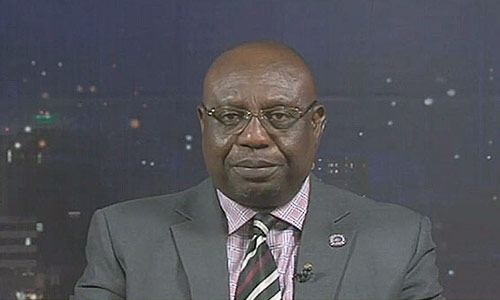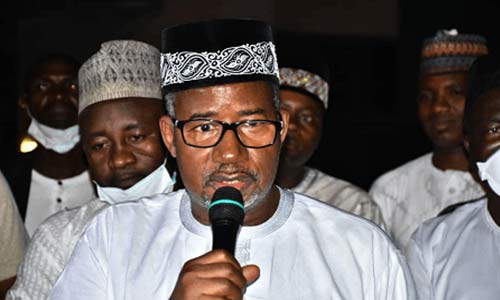NEWS UPDATES 14/12/2021
INEC: Prolonged Delay In Electoral Bill Assent May Affect Ekiti, Ondo Guber Polls

The Independent National Electoral Commission (INEC) has cried out that a prolonged delay in assenting to the new Electoral Bill may hinder its preparations and smooth conduct of upcoming elections, including the governorship polls in Ondo and Ekiti States scheduled for June and July 2022.
INEC’s worry came just as the Convener of the Civil Society Situation Room, Mrs. Ene Obi, and the Executive Director of the Policy and Legislative Advocacy Centre (PLAC), Mr. Clement Nwankwo, made a case for President Muhammadu Buhari to urgently sign the Electoral Bill into law.
Speaking as one of the panelists at the Situation Room Stakeholders Forum on Elections held Monday in Abuja, the INEC National Commissioner in charge of Voter Education and Publicity, Mr. Festus Okoye, said that the commission will find it difficult to adjust its plans if the Electoral Bill is suddenly signed midway to the series of off-season elections scheduled for the first half of 2022.
He said: “We as the electoral management body need to be prepared early enough. As of today, we have a number of elections that we are going to conduct. We have the FCT Area Council elections that we are going to conduct in February and then we have the Ondo and Ekiti governorship elections that are going to take place in June and July.
“So, we need to have a hold on the new electoral legal framework so we can begin to prepare, do procurement and also begin to design our guidelines and regulations before we get close to the 2023 general elections.”
Okoye said that the implications of a new Electoral Act will be that INEC would have to draw new guidelines and regulations in readiness for the 2023 general election in the country.
According to him, INEC will reach conclusions on how to carry out monitoring of party primaries and the cost implications after the political parties would have decided on the nature of primaries and submitted same to the commission.
He added that one of the landmark issues, as far as the amended Act is concerned, is the deepening of the democratic process through the introduction of technology in the electoral process.
Okoye also said that with a new electoral legal framework coming into effect, political parties will adjust their guidelines and processes to align with the law.
“If the new electoral legal framework comes to force, political parties are going to conduct their primaries early in 2022 and presupposes that they will also have a guideline for the conduct of party primaries,” he said.
In her remarks, the Convener of the Situation Room, Obi, said though it may not be possible to have a perfect law for the election, but the new electoral legal framework is definitely something that could move the country forward in the right direction.
On his part, Nwankwo said that President Buhari will be doing a collosal damage to whatever legacy he may leaving behind if he fails to heed the yearnings of Nigerians to sign the Electoral Bill into law.
“We know that the president has spoken to everyone that he needed to and consulted with everyone that he wants to consult with, so if he doesn’t sign the Bil, it is his decision and not that of anyone else,” he said.
Another panelist and a gender rights campaigner, Mrs. Ebere Ifendu, said women are excited about the newly amended Electoral Act because of some of the innovative ideas brought in to further the cause of women participation in governance in Nigeria.
Ifendu however flayed the recently concluded national convention of the Peoples Democratic Party (PDP), which she alleged, failed to uphold the party’s constitution that provided 35 per cent affirmative action for women inclusion in the party offices.



